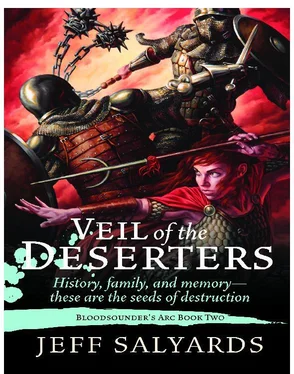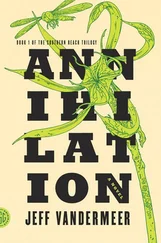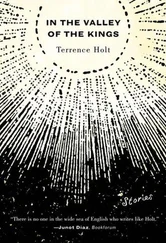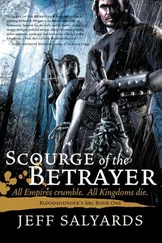Jeff Salyards - Veil of the Deserters
Здесь есть возможность читать онлайн «Jeff Salyards - Veil of the Deserters» весь текст электронной книги совершенно бесплатно (целиком полную версию без сокращений). В некоторых случаях можно слушать аудио, скачать через торрент в формате fb2 и присутствует краткое содержание. Жанр: Фэнтези, на английском языке. Описание произведения, (предисловие) а так же отзывы посетителей доступны на портале библиотеки ЛибКат.
- Название:Veil of the Deserters
- Автор:
- Жанр:
- Год:неизвестен
- ISBN:нет данных
- Рейтинг книги:3 / 5. Голосов: 1
-
Избранное:Добавить в избранное
- Отзывы:
-
Ваша оценка:
- 60
- 1
- 2
- 3
- 4
- 5
Veil of the Deserters: краткое содержание, описание и аннотация
Предлагаем к чтению аннотацию, описание, краткое содержание или предисловие (зависит от того, что написал сам автор книги «Veil of the Deserters»). Если вы не нашли необходимую информацию о книге — напишите в комментариях, мы постараемся отыскать её.
Veil of the Deserters — читать онлайн бесплатно полную книгу (весь текст) целиком
Ниже представлен текст книги, разбитый по страницам. Система сохранения места последней прочитанной страницы, позволяет с удобством читать онлайн бесплатно книгу «Veil of the Deserters», без необходимости каждый раз заново искать на чём Вы остановились. Поставьте закладку, и сможете в любой момент перейти на страницу, на которой закончили чтение.
Интервал:
Закладка:
“So,” I tried to imagine all these barbarians agreeing not to massacre each other for a day, “did all the tribes attend unarmed then? I’m assuming the Syldoon didn’t?”
“Tribal warriors were allowed to bear one weapon only-we would sooner cut our cocks off than be completely disarmed-but they had to be bound by a peace cord.”
“A what?”
He glanced at me and smiled, devoid of derision and remarkably free of twitches. “I do forget sometimes where you come from. It is a leather thong on a scabbard that was looped around the hilt. A peace cord hinders the drawing of a blade, especially in a moment of anger. It was used during tribal weddings, funerals, treaties, surrenders. And Sanctuary. That was my first one. My father took us. Soff and me. It would be my last as well.”
I hesitated to ask the next question, but seeing how generous he was with information, I pressed on. “So your father was a warrior?”
“Ha! No. Not even reluctantly.” Braylar took a deep breath, released it out his nose. He looked pensive, but still not as irritated as I expected. “I don’t know if any of us know our fathers well. We often see them as less or more than they really are. I knew he was fat. I knew he was soft in our discipline, often deferring to our mother. He liked bees and honey. He was a good breeder of sheep, and could play the flute with moderate success. He brewed very fine mead, but rarely drank, despite the often-flushed face and broken blood vessels in his nose.
“And I knew he would rather do anything but fight. This last colored everything else in my eyes. The Vorlu is a warrior culture. A man is judged on how well he wields a sword or a spear, how many raids he has been on. A man who does these things well is glorified in song and poem, his exploits recorded to be celebrated, and a man who does them exceptionally well is remembered in exceptional songs that are sung for eternity. A man who fights poorly might still be valued in the tribe for his husbandry, craftsmanship, knowledge of the law, what have you. But he’ll never be glorified, and even if he’s gifted beyond measure at what he strives at, he’ll be forgotten. Quickly.”
“Your father, then?” I asked.
“In my eyes, my father was a weak man, a frightened man. I didn’t value him. He taught us how to swing a sword or strike with a spear, but with little enthusiasm and less skill. I was embarrassed for my father. And for myself. And so, being a foolish boy who failed to appreciate what he had, I routinely mocked him, and did everything to incur his wrath, which rarely showed, despite my best efforts.
“Still,” he said, with a sweep of his hand, as if wiping away an unpleasant memory, “I was excited to be going to a Sanctuary with him. And when I saw a black squirrel on the way there and pointed it out, my father laughed and said the day promised good things indeed. The morning was cold, the ground colder, but the sun was out, and many of the Vorlu attended, eager to see what goods the foreigners brought this year, glad to be able to venture out after huddling around fires for so many months. The camp was small-several pavilions, a few wagons, little else. But it wasn’t the size that made an impression, it was the inhabitants. For most tribals, their birthplace is their death place, their lives lived and lost in a ten mile radius. But at Sanctuary, we were exposed to grand foreigners, soldiers who had once been as we were, tribals, but who now traveled across seas, roamed over continents, conquering and trading and exerting their influence in countries far and wide in ways we could not possibly imagine.”
“Were they so very different in appearance?”
“Oh, yes. Some fair skinned, with ruddy cheeks and beards like bird nests, who shaved their heads from the crown back but braided the front down along their ears. Men with skin like dark clay who pierced their faces and carved runes into their cheeks. A few who shaved their entire bodies, arms, head, eyebrows, and dyed their ears yellow.”
I thought about the Syldoon in his company, a mixed group to be sure, but without any wild flourishes. “But your own crew-?”
“Ahh, yes, picked in part to appear innocuous, yes? These Syldoon at Sanctuary were chosen to awe with the wild diversity.”
“You’d seen them before though? The Syldoon?”
“As I said, they came every three years. But they never failed to impress. Many of the Syldoon were similar to my own people, swarthy and dark-haired like the Vorlu, but others clearly hailed from distant lands and climes, with a wild variety of skin tones, physiques, and features. In that respect, it was the greatest menagerie in the world. And my first Sanctuary was the first opportunity to see them up close.
“Our father pointed out the Syldoon commander, a small man with gray eyes and cropped hair. He was squatting in front of a map and glanced up as the tribes filed into the encampment, but made no other sign of recognition.
“Tables and benches were laid out with Syldoon wares on top of them. Wineskins and fantastic bottles made of colored glass-blue, brown, green, red. I had never seen the like before. Bolts of cloth as strange and foreign as the races that wove them. Stirrups. Sharp fruit that looked like misshapen purple stars. Pungent spices in tiny bleached boxes. All things from lands we had never seen before, designed to awe and amaze. Which they did, provincial barbarians that we were.”
I asked, “Did the tribes bring their own wares?”
“Yes. We had nothing the Syldoon hadn’t seen before, of course, but tradition is tradition. Scabbards and belts, boots lined with marten fur. Sealskin cloaks. Jugs of mead. Combs carved from bone. Torcs of silver and gold. Harps, flutes. Quivers decorated with shells and antler. And my father with his honey.”
He said this last bit with an edge, but it slipped away as he continued.
“The Syldoon and the tribes greeted each other as dogs do, warily, unsure what the relationship might be. The tribes eyed each other suspiciously, the Syldoon looked on with closed expressions. A few greetings were spoken, without warmth. But slowly the haggling began. And with each bid and counter bid, even those requiring an interpreter, the tension seemed to disappear. Our father approached a man with large ears who he seemed to know. There were reserved smiles on both parts. The man exchanged a few words with our father and then lifted a crate of lemons, which I had never seen before. My father pulled a clay jar of honey out of his satchel, and both began examining the other’s wares, chatting like morning birds. I had no interest in fruit, odd or no, and still less in honeycombs, so I turned away to see what else I could see.”
He took his eyes off the branches overhead, no longer interested in squirrels of any color.
“I walked toward a table crowded with colored bottles. Soff moved off to inspect some of the rich cloth. I was holding a small vial the color of swamp water in my hand when I heard something in my father’s voice that caused me to turn around.”
While his eyes were open, it still felt as if the captain were almost narrating one of the stolen memories, living or reliving it in excruciating detail, even though this day must have happened decades ago.
“There was a young Syldoon,” he said, “standing between my father and Lemonman-short, patchwork stubble on his face, dark of hair and eye. The young Syldoon looked angry, my father looked confused. The Syldoon swore, stepped closer to my father and knocked the clay jar out of his hands. It hit the dead grass and didn’t break. Lemonman yelled the younger Syldoon’s name-Slinger-and said something else I couldn’t make out. My father bent over to pick the jar up. The young Syldoon kicked the jar away before my father could reclaim it, and this time it hit a rock and cracked. Honey began oozing into the dirt. My father looked up at the Syldoon, shook his head sadly, and took a step to grab the jar. The Syldoon grabbed my father’s sleeve and pulled on it hard enough that my father almost lost his balance.
Читать дальшеИнтервал:
Закладка:
Похожие книги на «Veil of the Deserters»
Представляем Вашему вниманию похожие книги на «Veil of the Deserters» списком для выбора. Мы отобрали схожую по названию и смыслу литературу в надежде предоставить читателям больше вариантов отыскать новые, интересные, ещё непрочитанные произведения.
Обсуждение, отзывы о книге «Veil of the Deserters» и просто собственные мнения читателей. Оставьте ваши комментарии, напишите, что Вы думаете о произведении, его смысле или главных героях. Укажите что конкретно понравилось, а что нет, и почему Вы так считаете.










